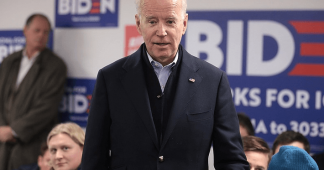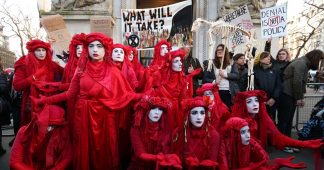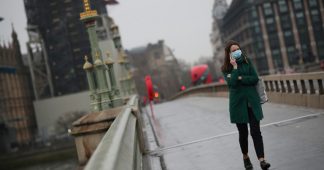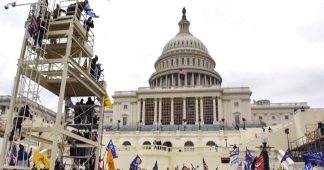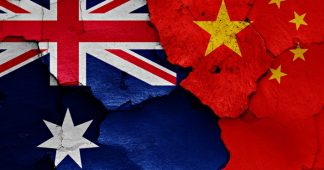By Paul Gregoire
November 23, 2021
The surveillance state is a concept that is increasingly being applied to the Australian setting. In these paranoid times of mounting theories involving government control, it is somewhat sobering to acknowledge that the mass monitoring of the population is an offspring of the turn of the century.
Following the 9/11 New York terror attacks, the United Nations Security Council passed Resolution 1373, which required all state parties to establish terrorist acts “as serious criminal offences in domestic laws”, with punishment duly reflecting the gravity of such acts.
Successive federal governments have done so with relish. Then Coalition PM John Howard kicked the project off with the Security Legislation Amendment (Terrorism) Act 2002 (Cth). Since then, a further 91 national security bills have been passed – with bipartisan approval – at the federal level.
Australia is the only liberal democracy without any specific bill protecting citizens’ rights in law at the federal level. This has allowed the volume and reach of these terror laws to far surpass those of comparable nations.
And it is this framework of terror laws that has facilitated the ever-growing surveillance state.
According to NSW Council for Civil Liberties president Pauline Wright, this has led to a criminal justice system that can target individuals prior to any actual crime being committed, along with a vast network of intelligence powers that have produced outcomes such as the metadata retention regime.
The rights of all
“Ninety two pieces of legislation have been brought in now,” Wright told Green Left. “You need to bear in mind that we had none before 9/11 – zero. And now we’ve got 92 pieces, and the volume of it is really extraordinary.”
“Australia has no bill of rights and that has allowed the Australian government to bring in legislation that it would not have been able to have enacted in other nations, like the United Kingdom, the United States and Canada, where they have bills of rights or human rights acts.”
The Australian scenario is well-known: a minister appears before the press spruiking new laws to target terrorists or some other favoured go-to, such as paedophiles; they lay out the threats to the public the laws would curb; and the fear this provokes serves to stymie any concerns about overreach.
But these laws actually encroach upon the rights and liberties of all citizens and residents, often in not so obvious ways. Taken together, the full implications of this patchwork of draconian laws are not so clear at first glance.
“The argument has been that those extreme powers that we do have enhance Australia’s national security,” explained Wright, “but we doubt that some of those extreme powers have been effective, even though they fundamentally impact on our rights.”
Orwellian in reach
The most recent surveillance state-enhancing bill passed by the Scott Morrison Coalition government was the Surveillance Legislation Amendment (Identify and Disrupt) Bill 2021 (Cth), which set up a three-tiered warrant system permitting the hacking of devices and online accounts of serious criminals.
These laws are said to target terrorists, paedophiles and human traffickers, as well as prevent assassinations. Yet, there are provisions that allow for the infiltration of online accounts and devices of nonsuspects in cases where it is suspected a criminal may have accessed them or could do so in the future.
Far-reaching powers were also enacted in the Telecommunications and Other Legislation Amendment (Assistance and Access) Bill 2018 (Cth), which gifted intelligence and law enforcement agencies a three-tiered system requiring communications providers to allow access to their encrypted systems.
And both the Identify and Disrupt Bill and Tola Act created warrants that allow government agents to not only access a device or an online account but also “add, copy, delete or alter” data within the device or account as part of their investigations.
The warrant used by the Australian Federal Police to raid the Sydney offices of the ABC in relation to The Afghan Files report – which was based on classified documents leaked by former ADF lawyer David McBride – contained the “add, copy, delete or alter” data provision.
Creeping powers
With the exercise of never-before-used public health laws in March 2020 to facilitate the rollout of pandemic restrictions came further proposals to implement measures like the COVID tracing app. This led the ears of human rights and civil liberties advocates to prick up.
The COVID tracing app failed. But what we seemingly have in its place is the all-pervasive check-in app, which was established as a means to monitor people’s movements to track whether they had come into contact with a COVID positive person in a public setting.
“The trouble with something like that,” Wright warned, is “once it becomes normalised and people get used to it, they start to think it’s OK. But, in fact, the security of the data that can be collected by QR codes is of concern.”
“So, we’ve got to guard against making QR code check-ins normalised.”
A lack of protections
The public health restrictions and vaccine mandates that have been imposed during the COVID-19 pandemic have led many Australians to question what it means to have their rights infringed upon by government, and to discover that the nation’s laws do not adequately protect freedoms.
Recent legal cases challenging public health orders, such as Kassam versus Hazzard, have highlighted the lack of rights protections in this country.
“We need a federal Human Rights Act. We need one in NSW,” Wright said, adding that the absence of one means “we don’t ensure that each piece of legislation that is passed in Australia is subject to proper scrutiny and is tested against standards for human rights protection.”
The individuals that first drafted the Australian Constitution considered including a bill of rights, but decided against it as it might have hindered the application of racially motivated laws of the time.
The last occasion a federal government raised the option of enacting one was the Kevin Rudd Labor government, with the 2008 Brennan inquiry.
The NSWCCL president outlined that there is a real need to protect our “fragile and precious” civil liberties at the federal level.
Wright said such laws are needed to ensure governments act humanely towards “the powerless in society”, and could potentially provide “civil society with common ground for discussing ethics, both beyond and within government”.
“It also allows us to look at how we balance and adjudicate competing rights,” said Wright. “We have seen how that works in times of pandemic, with the greater population’s right to health coming into conflict with the individual right to freedom of movement.”
[Paul Gregoire is a Sydney-based journalist who writes for Sydney Criminal Lawyers.]
We remind our readers that publication of articles on our site does not mean that we agree with what is written. Our policy is to publish anything which we consider of interest, so as to assist our readers in forming their opinions. Sometimes we even publish articles with which we totally disagree, since we believe it is important for our readers to be informed on as wide a spectrum of views as possible.
